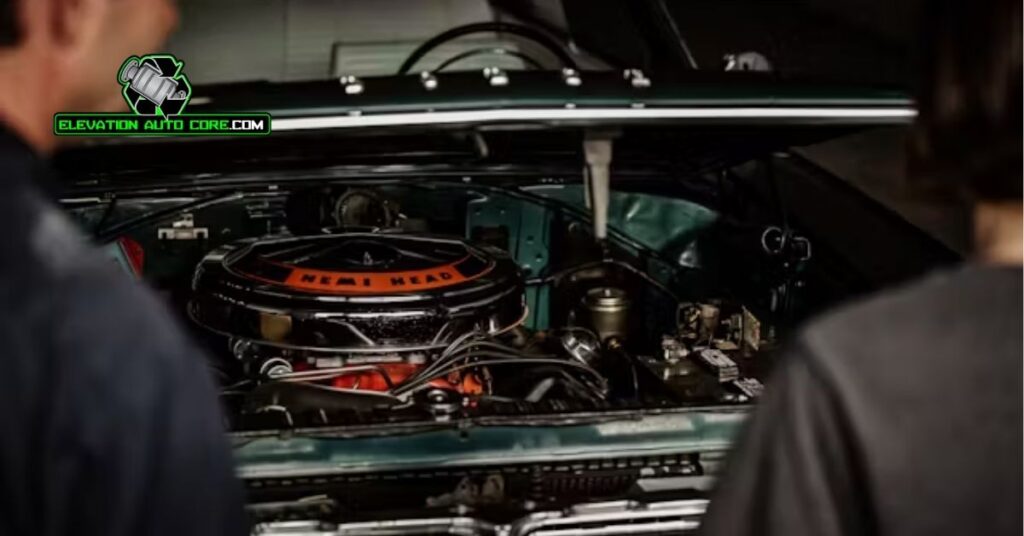Why don’t cars have carburetors anymore? With advancements in automotive technology, fuel injection systems have taken over, offering better efficiency, performance, and reliability. If you’ve ever wondered what led to this shift and why carburetors became a thing of the past, keep reading to uncover the reasons behind this major evolution in car engines.
History Of Carburetors

Carburetors once played a crucial role in fueling internal combustion engines. Over time, their design and application evolved, reflecting advancements in automotive engineering.
Early Development And Use
Carburetors emerged in the late 19th century to regulate air-fuel mixtures in engines. Early designs, like the spray nozzle carburetor patented by Karl Benz in 1888, were simple but functional. These devices used atmospheric pressure and engine vacuum to draw fuel into the air stream, ensuring combustion.
Their adoption in the automotive industry grew as vehicles became more complex. By the 1920s, most cars featured carburetors, which improved engine performance. They remained the standard for mixing fuel and air for decades due to their mechanical simplicity.
Popularity In Classic Cars
Carburetors became iconic in classic cars produced between the 1930s and 1970s. Vintage models like the Ford Mustang and Chevrolet Camaro relied on four-barrel carburetors for responsive throttle control and higher horsepower.
Their appeal extended beyond engineering. Carburetors were easy to adjust, making them popular among enthusiasts. Modifying and tuning the fuel flow allowed drivers to boost performance, especially in muscle cars and hot rods.
Why Do Cars No Longer Have Carburetors?

Carburetors became obsolete as advancements in fuel injection systems transformed automotive engineering. Fuel injection’s precision and adaptability outclassed carburetors, driving their replacement in modern vehicles.
Introduction Of Fuel Injection Systems
Fuel injection systems began replacing carburetors in the late 20th century due to their superior technology. Unlike carburetors, which rely on mechanical processes, fuel injectors deliver fuel directly into the engine cylinders using electronic controls. This design achieves more accurate air-fuel mixture ratios. Regulatory changes in emissions standards during the 1980s accelerated their adoption, as fuel injection systems offered cleaner, more efficient combustion.
Efficiency And Performance Improvements
Fuel injection systems provide important efficiency and performance gains over carburetors. They enable engines to adjust air-fuel mixtures in real time based on variables like temperature, altitude, and load. This adaptability improves fuel economy and reduces waste. Modern fuel injectors also enhance acceleration, power output, and low-temperature starting. These systems minimize uneven fuel distribution issues common in carburetor designs, ensuring consistent engine performance across various conditions.
Technological Advancements In Automotive Engineering

Innovations in automotive engineering have revolutionized how engines operate. These advancements replaced traditional carburetors with more efficient, reliable, and precise fuel injection systems.
Electronic Control Systems
Engine management systems now rely heavily on electronic control units (ECUs). These systems monitor various sensors to adjust the air-fuel mixture, ignition timing, and other parameters in real time. This level of precision wasn’t achievable with carburetors, which operated mechanically.
Data collected from the sensors helps optimize performance under different conditions, like temperature or altitude changes. For example, mass airflow sensors and oxygen sensors work together to calculate the ideal fuel delivery instantly. This leads to smoother acceleration, better fuel economy, and lower emissions.
Environmental Regulations And Emissions Standards
Stricter emissions standards demanded a shift to cleaner technologies. Carburetors couldn’t efficiently meet these requirements due to their less accurate fuel control. Fuel injection systems, conversely, enabled engines to burn fuel more completely, reducing harmful pollutants like carbon monoxide and unburned hydrocarbons.
Legislation in the 1980s, especially in the United States, accelerated the adoption of electronic fuel injection due to rising environmental concerns. Meeting global emissions targets necessitated systems capable of real-time adjustments that carburetors lacked. As a result, cleaner, more advanced engines became standard across the automotive industry.
Benefits Of Modern Fuel Injection Over Carburetors

Modern fuel injection systems outperform carburetors in critical aspects, making them the standard in automotive engines. They offer important advantages in efficiency, performance, and reliability.
Improved Fuel Economy
Fuel injection systems precisely control the air-fuel mixture delivered to the engine. Sensors and electronic controls ensure optimal combustion, reducing wasted fuel. Real-time adjustments help adapt to varying driving conditions, such as changes in altitude or temperature. This high precision leads to better mileage compared to carburetors, which rely on mechanical adjustments and often deliver inconsistent mixtures. Vehicles equipped with fuel injection consume less fuel, lowering operating costs and environmental impact.
Enhanced Engine Reliability
Fuel injection improves engine longevity by delivering a consistent and appropriate fuel supply. It minimizes issues such as engine flooding or uneven performance, which were common in carburetors. Advanced monitoring systems, including mass airflow and oxygen sensors, prevent fuel delivery discrepancies that can cause wear. With fewer moving parts than carburetors, fuel injection systems experience less mechanical failure. This consistency reduces the likelihood of breakdowns, making modern systems more dependable across various operating conditions.
Conclusion
The shift from carburetors to fuel injection systems reflects the evolution of automotive technology aimed at meeting modern demands for efficiency, reliability, and environmental responsibility. While carburetors hold a nostalgic charm for their simplicity and historical significance, fuel injection systems have proven to be the superior choice for today’s vehicles.
By embracing advanced technology like electronic controls and sensor-based optimization, fuel injection systems have redefined engine performance and fuel economy. This transition has paved the way for cleaner, more efficient engines that align with stricter emissions standards and the needs of modern drivers.

